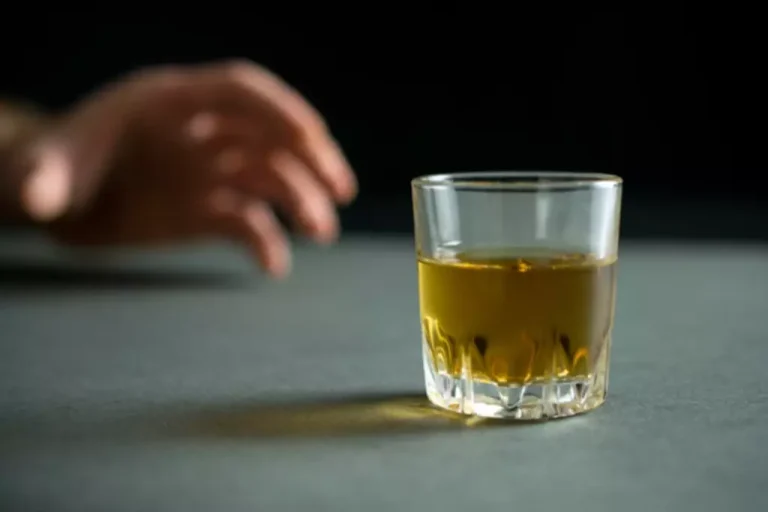
This might involve learning relaxation techniques such as deep breathing or meditation, or finding physical activities that release tension and boost your mood, such as yoga or running. Another common side effect from drinking alcohol is sweating. This is your body’s way of lower your temperature through sweat. There are a few reasons why you might get sweaty when drinking alcohol, and many of these reasons are interdependent. If you have night sweats but you haven’t consumed alcohol recently and you’re a regular drinker, it may be a sign of alcohol withdrawal. While some of these effects are generally mild and short-lived, others can point to more chronic, compulsive patterns of drinking.
Is It Dangerous To Get Hot When You Drink Alcohol?
As for drinking more generally, having the occasional social drink is usually nothing to be concerned about. However, if you find yourself drinking often enough that sweating from alcohol is a common issue, it may be worth cutting back on how much you consume. Excessive drinking has numerous impacts on your body and mind, ranging from mild to severe.
Night Sweats and Alcohol: Why Alcohol Makes You Hot
- For some of us, half a dozen drinks during a night out aren’t yet enough to faze us.
- Sweat is crucial for keeping our bodies cool, but sweating can be uncomfortable when you’re trying to sleep.
- Too much alcohol intake can increase the body temperature, leading to vasodilation and sweating, which are the body’s means of maintaining optimal temperature.
- The flush may improve or decrease in intensity with time but might not completely go away.
- A person should seek immediate medical attention if they experience these symptoms.
- Additionally, alcohol use during menopause can increase the risk of certain health conditions, including heart disease, stroke, osteoporosis, and breast cancer.
Without diagnosis and treatment, it could lead to liver complications. Night sweats are often self-limiting and not a cause for medical intervention. However, if they persist, recur, or happen alongside other symptoms, help may be necessary. Alcohol intolerance is a genetic disorder where the body does not have enough of the enzyme activity necessary to break down alcohol. A person should seek immediate medical attention if they experience these symptoms. Alcohol can cause the heart rate to quicken or the heart rhythm to become irregular.

The Dangers of Wealth and Addiction

It’s essential to distinguish alcohol intolerance from addiction, as the former is a response to the body’s difficulty in breaking down alcohol rather than a psychological dependency. Sometimes, a person may appear to have alcohol intolerance but react to another ingredient in a drink. Doctors may use allergy tests to determine whether alcohol is the issue. Home remedies can usually help manage alcohol-induced night sweats.
- In summary, your body may actually produce some extra heat while you are drinking, but most of this finds its way to the surface of your skin or your extremities.
- Because alcohol intolerance is a genetic condition, there’s currently no cure for it.
- There are many risks of long-term alcohol use, including cancer and liver damage.
- While some side effects are common, you may want to talk to your doctor if they become severe or happen frequently.
- If you believe you may be struggling with an alcohol use disorder or alcohol abuse, seek medical advice.
Alcohol and Colds: Does Whiskey Help a Cold?
Such home remedies may include staying hydrated and keeping the bedroom at a comfortable temperature. Discover the dangers of drug use during pregnancy and its impact on unborn babies. Break free from denial in addiction with effective strategies and professional guidance. Uncover tailored treatment approaches and strategies for lasting recovery. Uncover the stages, factors, and impact of alcohol dependence for a deeper understanding.
- If you’re not consciously keeping track of the drinks you’ve chugged, it’s easy to go over these limits.
- A spike in insulin levels causes hypoglycemia or low blood sugar and this is usually accompanied by sweating.
- Excessive alcohol intake, in particular, can adversely impact various aspects of your well-being, from your immediate safety to your long-term health.
- Body temperature, however, dropped 20 minutes after the sweating began.
- The effects are similar to that of the medication Antabuse (disulfiram), which is often used to treat alcohol addiction.
There are also some simple ways to find relief such as helping metabolise alcohol and acetaldehyde faster with over the counter supplements. People who cannot tolerate alcohol must avoid the substance, or otherwise try to find out and avoid what specific substance he is allergic to, such as grapes in wine or yeast in beer. Limiting alcohol intake and taking antihistamines to relieve symptoms are also recommended.
- On another note, if you experience frequent hangovers or drink heavily and frequently, you might have a more serious issue.
- In short, alcohol may increase your risk of experiencing gastritis and digestive symptoms.
- Current users of alcohol have been found to have higher levels of Sex Hormone Binding Globulin (SHBG) compared to those who do not consume alcohol.
- Some people receiving treatment for cancer have hot flashes and night sweats.
Common symptoms

Even consuming a large amount of alcohol on a single occasion can slow down the body’s ability to fight off infections for up to 24 hours post-drinking. You might also sweat after drinking due to having an intolerance to alcohol. Having an alcohol intolerance is a genetic condition where your body isn’t able to produce the enzymes it needs to break down toxins in alcohol. The effects are similar to that of the medication Antabuse (disulfiram), which is often used to treat alcohol addiction. It’s crucial for women going through menopause to make informed choices about alcohol consumption. If you choose to drink, it’s generally recommended to do so in moderation.
Are night sweats a sign of alcohol withdrawal?
Discover alcohol makes me hot at night the power of support groups in your recovery journey. Explore the prevalence, consequences, and interventions surrounding this connection. Ease back into sober living on your terms, with outpatient care that meets you where you are and gets you where you’re going. On your way to healing, we ensure you feel supported in a comforting, positive environment to help you reach your goals. While alcohol sends you into dreamland quicker, there’s a good chance that having too much will lead to a night of tossing and turning once its sedative effects wear off. As a first step, we offer a free addiction assessment, where we can develop an understanding of the difficulties you’ve been experiencing and talk you through how we could help.
